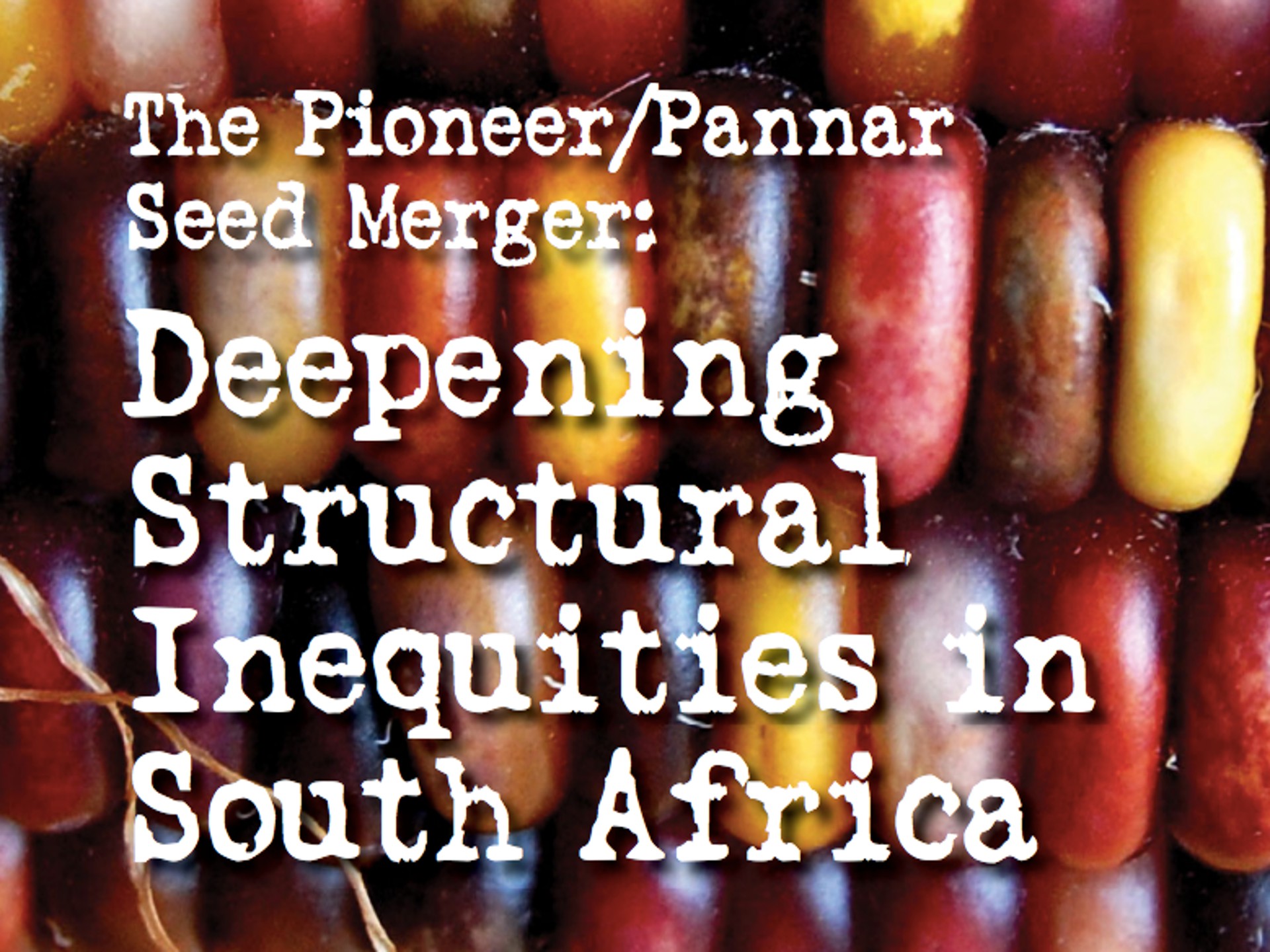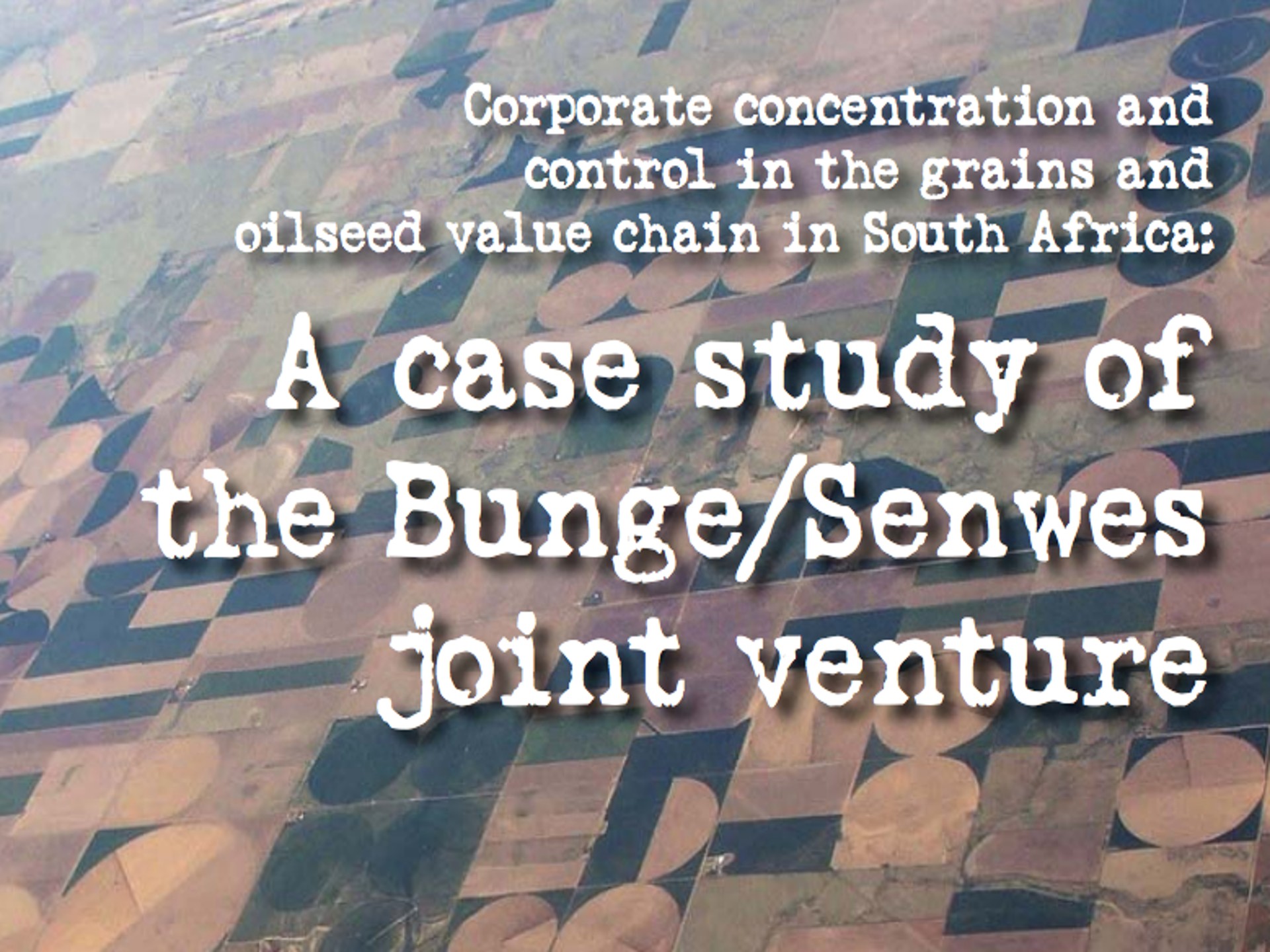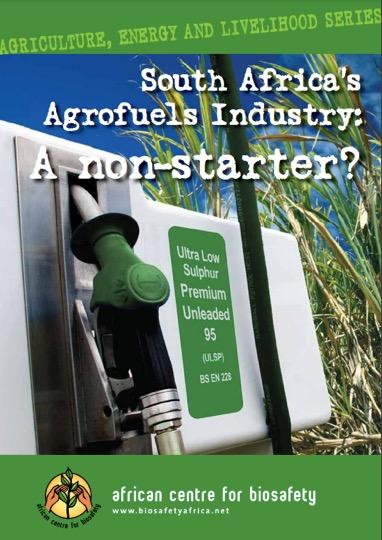Latest Resources

13 September 2012
The Pioneer/Pannar seed merger: deepening structural inequalities in South Africa
In this briefing, we deal with the Pioneer/Pannar seed merger, outlining the evidence led by the ACB in opposing the merger, what is at stake for South Africa if the merger is approved and the extent to which the merger will deepen structural imbalances in the South African economy. Read the briefing here.

1 August 2012
How Much Glyphosate is on your dinner plate? SA’s food safety compromised by lack of testing
This briefing paper forms part of a series of briefing papers on glyphosate to be released later this year by the African Centre for Biosafety (ACB). In this paper, we focus principally on food safety issues, highlighting our grave concerns about the utter regulatory failure concerning particularly, the monitoring, inspection and testing of food for […]

15 May 2012
Hazardous Harvest: Genetically Modified Crops in South Africa: 2008-2012
In this publication, we provide a comprehensive update of the situation with GMOs in SA. Since our last South African update on genetically modified crops, and the transnational companies that control the technology published in 2008, GMOs have become even more entrenched in the country’s agricultural landscape. Over three-quarters of South Africa’s maize is now […]

25 March 2012
GM Labeling in South Africa: The Law Demystified
During March 2012, the ACB revealed that four household food products tested positive for genetically modified organisms. None of these products have been labeled in accordance with the requirements of applicable South African laws. There appears to be a great deal of confusion about what the laws provide. In this briefing, we outline what the […]

3 October 2011
Corporate concentration and control in the grains and oilseed value chain in South Africa: A case...
The Bunge/Senwes joint venture signals the first significant investment by Bunge in Africa. Bunge is one of the world’s largest and most influential corporations and is amongst a handful of companies dominating global trade in agricultural commodities. Senwes holds a dominant position in the South African market for the storage and handling of grain crops. […]

3 September 2011
GM Banana Slips in South Africa: Key Issues and Concerns
In this briefing we deal with the application by the University of Pretoria for permission to conduct the first ever field trials in South Africa involving GM bananas. The rationale for the genetic modification is to combat Fusarium wilt, caused by a soil born fungi Fusarium oxysporum f.sp cubense (Foc). The idea is to genetically […]

13 May 2011
HEAVY HANDS – Monsanto’s control in South Africa
This paper seeks to update an earlier report, published by the African Centre for Biosafety (ACB) in 2004, titled ‘A profile of Monsanto in South Africa’. In that paper we found that Monsanto dominated the GM crop market in South Africa and was using its considerable power to influence agricultural markets and debates in the […]

24 March 2011
South Africa’s Agrofuel’s Industry: A non-starter?
This paper provides a brief overview of the biofuels industry in the context of the South African government’s 2008 policy. Our key finding is that the large-scale biofuels industry has stagnated almost to the point of non-existence. There is, however, a growing impetus to address the shortcomings in government policy that has held the industry […]

9 March 2011
Alert to anti-GM activists in Egypt, India, Mexico and South Korea
South Africa’s GM maize flooding into your countries!!! The African Centre for Biosafety (ACB) has been monitoring the GMO landscape in South Africa since 2004. As recently as three years ago South Africa was importing millions of tons of GM maize from Argentina, used mainly in the animal feed industry. During 2010, South African maize […]

9 March 2011
How US sorghum seed distributions undermine the FAO Plant Treaty’s Multilateral System
New data from ICRISAT and the US Department of Agriculture and a comparison of genebank records indicates that half of more of ICRISAT’s sorghum genebank collection is also being distributed outside of the Multilateral System. This yawning gap creates an economic incentive for the Multilateral System and its benefit-sharing requirements to be avoided. USDA’s sorghum […]
